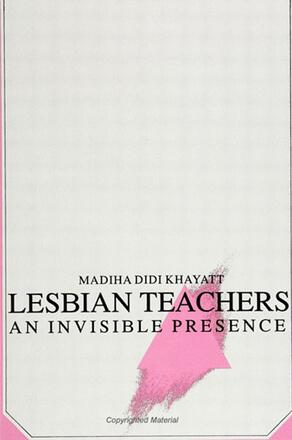
Lesbian Teachers
An Invisible Presence
Alternative formats available from:
Description
Teachers, in general, are hired to conform with set values of the community which hires them. They are expected to reflect conventions which correspond with an ideological model of behavior sanctioned by the state and by the community in which they work. In a publicly funded educational system, not only are teachers expected to transmit dominant ideologies, but, as representatives of the state, they are assumed to embody the dominant values of the society which hires them. The notion of lesbian teachers inevitably contradicts mainstream assumptions about female teachers—women whose image stereotypically corresponds with and implicitly conveys traditional female "virtues" of purity, dedication, and nurturance.
Using an analysis that combines feminist concepts of patriarchy with Gramsci's notion of hegemony, this book is an institutional ethnography which begins from the standpoint of lesbian teachers, but, at the same time, locates their experiences in the immediate social organization from which they arise and which gives them meaning.
Through intensive interviews with nineteen lesbian teachers, Khayatt explores these womens' lives as they themselves describe them: How do they conceal their sexuality? How do lesbian teachers cope in the classroom? How do they deal with their perceived need to live a double life? To whom do they come out? Why do they feel unsafe to be out despite the potential protection of legal rights? And, finally, what would they stand to lose if found out?
Madiha Didi Khayatt is Assistant Professor of Women's Studies at Glendon College, York University, Toronto.
Reviews
"I applaud the author's courage in addressing a topic which has received little attention from scholars in education. She illuminates Dorothy Smith's methodology with extensive examples from her own and other lesbian teachers' lives. As such, she points to the public/private dichotomy as one that permeates not only these women's lives, but also the lives of their students and colleagues" — Janet L. Miller, Hofstra University